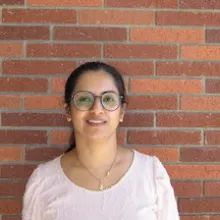
When
Where
Header image credit: Zephyris, CC BY-SA 3.0, https://commons.wikimedia.org/w/index.php?curid=6998210
Video Recording
Tutorial
Presentation Slides
About this Webinar:
This webinar will introduce the basic principles of analyzing chromatin immunoprecipitation sequencing (ChIP-seq) data, which is a powerful and versatile technique used for probing protein-DNA interactions. Thanks to the advances in sequencing technologies, high-throughput ChIP-seq offers researchers higher resolution, less noise, and greater coverage to identify and characterize DNA binding events at a genome-wide level compared to its array-based predecessor, ChIP-chip. In this webinar, Reetu will cover the basics of ChIP-seq data handling and how to use public apps in the CyVerse Discovery Environment (DE) for processing and interpreting your ChIP-seq data. Reetu will run sample data with the CyVerse apps to demonstrate basic but key steps of ChIP-seq analysis: quality control of data, mapping data to a reference genome and peak calling. This webinar will help participants efficiently manage and analyze ChIP-seq data, starting from sequence reads through peak calling.
About the Presenter:

Reetu Tuteja is a Science Analyst at CyVerse, where she works with CyVerse technologies, developers and researchers to develop cutting edge scientific workflows and applications in the area of bioinformatics and high-throughput sequence analysis. As an instructor of both Foundational Open Science Skills and Container Camp, Reetu also helps accomplish a key part of CyVerse’s mission to train researchers in using cyberinfrastructure, and also provides user support and helps improve platforms and services. She earned her Master’s degree in bioinformatics from Banasthali University, India, and her PhD in plant sciences and bioinformatics from the National University of Ireland, Galway. Her research interests include the origination of new genetic material and its role in plant adaptations, and, “ writes code for fun.” In her free time, she enjoys swimming, cooking, and spending time with her daughter and is a great contributor to CyVerse potlucks.

